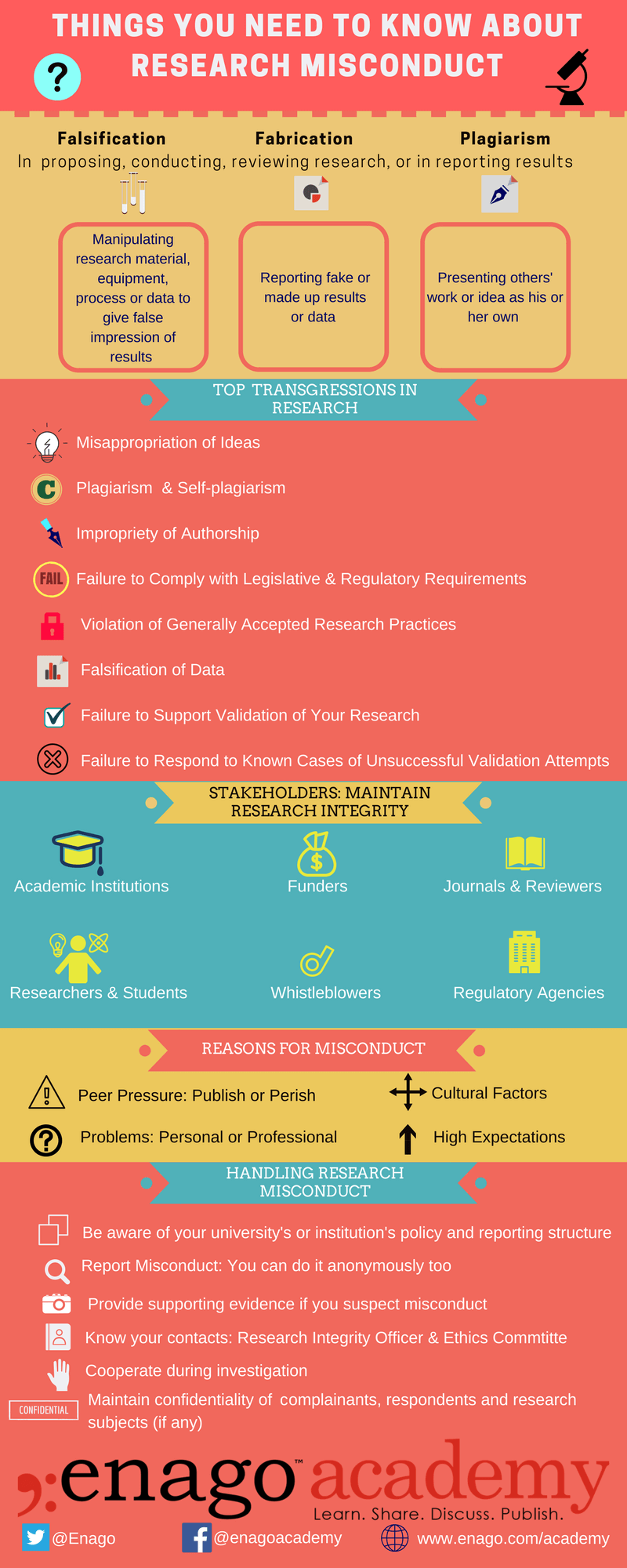This infographic takes a detailed look at what research misconduct entails, how the practice unfolds within research communities and what community stakeholders can do to prevent and apprehend perpetrators and instances of the practice.
According to the U.S. National Science Foundation, research misconduct involves fabrication, falsification and plagiarism of research data.
Other kinds of research transgressions include impropriety of authorship, failure to comply with legislative and regulatory requirements, failure to support validation of one’s own research and many more.
Community stakeholders include academic institutions, funders, researchers, journals amongst others.
There are numerous reasons an act involving fraud or misconduct may occur, the foremost being the pressures within the community to have one’s research published. Other reasons include cultural and personal factors attributable to the offenders in question.
Once apparent, one needs to be aware of how to go bout handing an instance of fraudulent conduct, including knowing whom to report it too, having supporting evidence and cooperating fully during the investigation. If hesitant, understand that you can do it anonymously too.

 Infographic Portal New Infographics Resource Portal
Infographic Portal New Infographics Resource Portal
